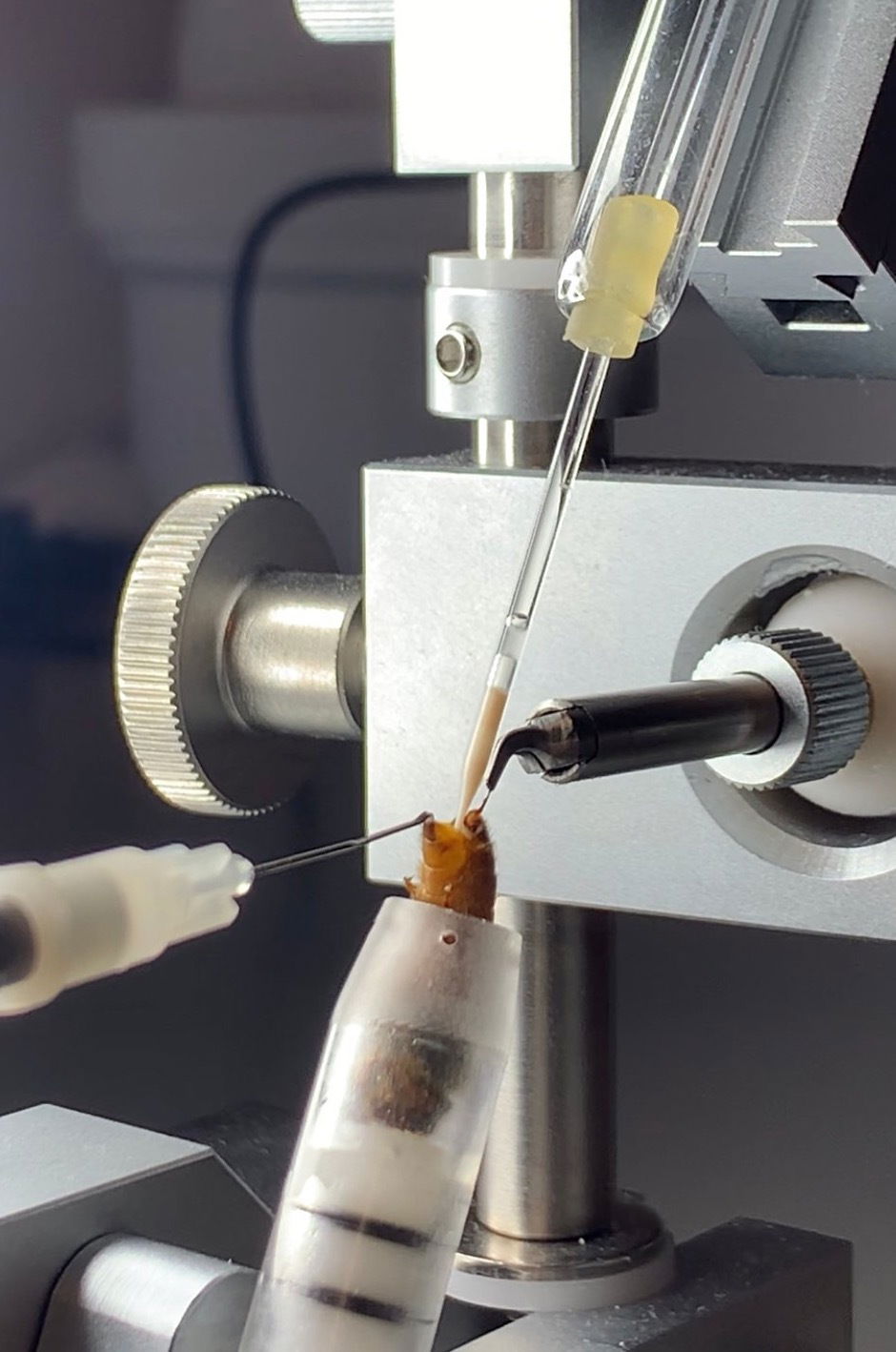Why instrumental Insemination of queen bees?

Instrumental insemination, I.I., is a proven and reliable method of controlled mating, providing an essential tool for honey bee research, bee breeding, and stock maintenance. The ability to control mating allows bee breeders to select stocks for economically valued traits and researchers to explore honey bee behavior and genetics.
The in flight, random, mating behavior of the queen to numerous drones has been difficult to control. Queens mate with an average of 10 to 20 drones and as many as 60. Drone congregating areas may contain 10,000 to 25,000 drones from 200 to 300 colonies of diverse genetic sources.
The technique also provides significant advantages, enabling the ability to create specific crosses beyond what occurs naturally. For example, a single drone can be mated to one or several queens, to isolate and amplify a specific trait. On the other extreme, semen from hundreds of drones can be homogenized and inseminated to a batch of queens. This allows unique mating system designs that simplify stock maintenance. For example, within a closed population breeding system this technique will increase the effective breeding population size and enhance viability and fitness.
Varying degrees of inbreeding can also be created to produce different relationships, including “selfing”; the mating of a queen to her own drones. Specific backcrosses can be created. Semen from the spermatheca of one queen can be extracted to inseminate another. These techniques offer unique research tools.
Another advantage of I.I. is the ability to store honey bee semen. Short term storage has been perfected. Semen can be held at room temperature and maintain good viability for several weeks. This allows for the easy and safe transport of semen, rather than live bees, reducing the risks of pests and diseases. In the near future long term storage of semen and eggs in liquid nitrogen will likely be perfected.
The increasing challenges facing the beekeeping industry – the impact of honey bee pests, parasites, pathogens and the phenomena of “Colony Collapse Disorder” creates an urgency in finding sustainable solutions. Selective breeding, stock improvement and the preservation and maintenance of genetic diversity of honey bee ecotypes and subspecies is critical to ensuing our food supply, worldwide.
Stock improvement, based on the practical application of scientific research, offers the best long term solution. Although, selective breeding will not provide the immediate and convenient remedy of chemical treatments, it is the most sustainable. The arsenal of chemical controls used to control honey bees diseases and parasites combined with the exposure to those used in agricultural production are proving increasingly detrimental.
Bee breeding is labor intensive and requires the dedication of a long-term commitment to a viable breeding system and stock maintenance plan. This includes a rigorous and annual selection program. With the sequencing of the honey bee genome and rapid development of new genetic technologies, the potential and direction of bee breeding offers an exciting future.
Instrumental insemination simply offers a tool toward this goal. The technique has been perfected to provide a high rate of success, equaling that of naturally mated queens.
Source:
https://bee-health.extension.org/instrumental-insemination-of-honey-bee-queens/